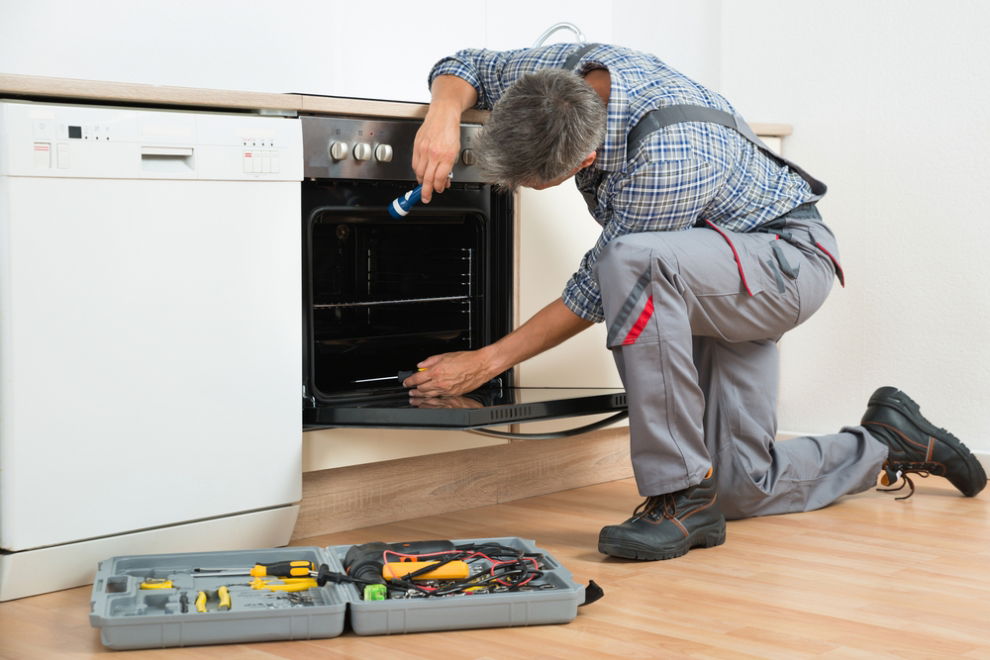In today’s volatile housing market, ensuring your home is protected against unexpected repairs and replacements is more crucial than ever. As homeowners seek peace of mind amidst the unpredictability of homeownership, home warranty companies have stepped up to offer a buffer against unforeseen expenses.
5 Best Home Warranty Companies
With so many options available, pinpointing the most reliable and value-packed home warranty company can be daunting. To help you choose, we’ve curated a list of the best home warranty companies to ensure your home’s systems and appliances receive the top-tier coverage they deserve. Take the time to discover which provider aligns best with your needs.
1. Choice Home Warranty
There are plenty of reasons to go with Choice Home Warranty. First, they are a top-rated business according to ConsumerAffairs.com and have an average rating of 4.8 out of 5.
2. Advanced Home Warranty
Advanced Home Warranty offers comprehensive coverage and a 24/7 claims hotline, making it a strong choice for anyone considering a home warranty.
3. Liberty Home Guard
Liberty Home Guard offers a high degree of personalization for your home warranty coverage. For example, you can pick the plan and also how often you want to be billed.
4. Complete Protection
Complete Protection is another excellent home warranty company. Servicing all but nine states, this A+ Accredited Business is open 24/7.
5. American Home Shield
The accolades American Home Shield has received are many. In addition to being a Better Business Bureau Accredited Business, they also received the Women’s Choice Award from 2014 to 2016.

Methodology: How We Chose The Best Home Warranty Companies
When researching the best home warranty companies, we analyzed over 20 of the most popular home warranty companies. Our team spent hours reviewing each home warranty company. We examined many factors, but mainly focused on the following:
- Home warranty plans and options
- Pricing
- Reputation and trustworthiness
- Customer reviews
Pros of Home Warranties
Peace of Mind
One of the major benefits of a good home warranty is peace of mind. A home warranty can bring some real financial security against unexpected home repairs. While getting your home in ideal shape can be tough, maintaining that level can be even more stressful. A good warranty coverage can cut away a big chunk of that worry.
Convenience
One of the biggest problems people can encounter when faced with unexpected breakdown at home is finding good help. But a home warranty also reduces some of that stress, as your provider can provide you with a relevant licensed expert within their network.
Potential Savings
In many cases, standard home repairs – such as a new boiler, for example – can be a lot cheaper if replaced under warranty. While home warranties can’t guarantee savings, chances are you will see the benefits speak for themselves over time.
Transferable
Many home warranties are transferable, meaning you could carry your plan to a new home if you decide to move. Be sure to check whether transferability is a feature of any warranty before signing if that’s important to you.
Cons of Home Warranties
Wait Times
Unfortunately, wait times for claims can sometimes keep you waiting. If you need a quick fix or emergency repairs at home, you may have to wait longer than you would like. One thing that can help here is looking for a provider that provides an online claims process. This is because online claims are often processed faster than those done over the phone.
Coverage Exclusions
Home warranties don’t cover everything, and it can be hard in an emergency to remember your exact coverage limits. It’s important to read the details carefully before signing up, and put a plan in place if you need work that falls outside your warranty coverage.
Cost
Home warranty coverage isn’t cheap, especially if you want to secure protection across your property. You won’t necessarily be covered by service fees, even if you choose a plan with a high service fee. And of course, some maintenance and repairs can come with further costs on top of your plan. These high costs can make it difficult to discern whether a home warranty is the right thing for you.
Other Home Warranty Companies to Consider
Here are a few other home warranty companies that didn’t make our top 5 that you may still want to look into.
- The Home Service Club
- First American Home Warranty
- AFC Home Club (America’s 1st Choice)
Like so many things in our lives, a home warranty is something that we don’t often think about until we absolutely need it. Sure, you have home insurance, maybe even flood insurance, but that only covers certain situations.
Homeowners Insurance
Homeowners or renters insurance can cover damage to your home from things like fire, theft, storms, and some natural disasters. In addition to your homeowners insurance plan, you should choose to purchase a home warranty to protect your belongings in a way that insurance lacks.
If you’ve ever purchased a large appliance, a computer, or even a television from a retailer, then you’re probably familiar with the concept of a warranty.
However, those are warranties sold at the time of purchase and cover only one product. The benefit of home warranty protection is that it can cover every product in your home and more.
Choosing a Home Warranty Plan
What a home warranty plan covers will depend on the plan you choose, and there are many to choose from. A home warranty can cover anything from your microwave oven to your plumbing and your electrical systems.
Deciding which plan is right for you will determine what items and systems it covers and how much it will cost. Typically, home warranties charge either a small monthly or annual fee that can save you a lot of money in the long run.
How to Choose the Right Home Warranty
Choosing the right home warranty is key. Let’s run through all the details you need to consider before making your decision.
Determine Your Coverage Needs
At the very least, it’s important to get at least an idea of what sort of coverage you need. Take the time to decide which items in your home you want to protect before comparing offers. You’ll find plans that cover appliances, home systems, and plans that cover both.
Compare Quotes
It’s worthwhile to shop around. Try to acquire at least three different quotes from plans that you’re genuinely interested in. And use this time to also prioritize clearing up any questions you have about the policies you’ve been offered.
Don’t forget to pay close attention to the various prices you’ll see for service call fees. Some companies are much more competitive than others, and some even offer a service fees range which you can choose from depending on your needs and budget.
Review Sample Contracts & Liabilities
The next step is to review any sample contracts carefully. You’ll want to identify the limitations and exclusions in the contract, especially.
Furthermore, be sure to double-check cancellation policy just in case you decide your warranty isn’t working for you later on.
Check Reviews
Finding the best home warranty company for you will require some further research. You can read customer reviews online to find a company that provides great customer service as well as competitive plans.
Be sure to look out for any record of previous legal action taken against the company, too.
Frequently Asked Questions
What is a home warranty?
A home warranty is a type of service contract purchased to cover breakdowns, repairs, and replacements of home appliances and systems. Home warranties are designed to cover normal wear-and-tear damage on covered items and systems.
When a covered item breaks down or otherwise requires attention, you file a claim with your warranty provider. They then send a licensed technician to your home to assess the issue. Instead of paying for the full cost of the repair, being under warranty generally means paying only a small service fee for necessary repairs. The price of service fees varies between providers.
Home warranties are popular because they offer homeowners maintenance coverage and emergency repairs without having to rely on savings. The home warranty market today is huge and can provide terms for homes and budgets of many shapes and sizes.
What does a home warranty cover?
Home warranties can cover a whole range of systems and appliances within your home. You can decide how much you want to spend and determine what items will be covered by your home warranty.
Most home warranty companies break down their offerings into good, better, and best options. The good option, and least expensive, is one that covers most if not all of your appliances.
Major Home Systems
More expensive on an upfront basis are plans that cover major home systems. These home warranty plans cover the systems within your home. If you’re renting, this may not be of concern to you. However, if you own your home, you know that a plumber or electrician can cost a lot more than replacing your refrigerator.
If you’re less concerned with appliances and worried about what keeps your home humming along, then you may want to consider a system plan.
Appliances
Appliances like your microwave, washer and dryer, dishwasher, and often a lot more are covered by the best home warranty companies. These are great options for those who are renting or want to spend the least amount of money.
Systems & Appliances
The most expensive plans, of course, offer the most coverage. The best plans cover both systems and appliances. So while they’re the most expensive, they’re also the best value. Covering your systems and appliances together will typically save you around 20% to 30% of your total bill.
Basic plans from the best home warranty companies will cover the majority of systems and appliances in your home but don’t cover everything. If you have a pool, for instance, you may have to choose additional coverage.
Some home warranty companies even allow you to add coverage to cover your homeowners’ insurance deductible. Combining appliance and system coverage may also include these additions.
There are exclusions to what a home warranty will cover. Unfortunately, no plan is a blank check to have every item in your home replaced. These are repair plans and not replacement plans.
What is not covered by a home warranty?
The extent of your warranty coverage will vary greatly between companies and plans available. Having said that, however, here is a list of the ideas that are usually not covered by a home warranty:
- Structural issues, paint and flooring
- Commercial-grade equipment or systems
- Pre-existing conditions
- Rust, corrosion and sediment problems
- Improper maintenance, installation, design, or manufacturer defect
- Detection and removal of asbestos and mold
- Building and zoning code violations
How much does a home warranty cost?
Home warranty pricing varies greatly depending on the coverage you choose, the home warranty company, and the area in which you live. In general, though, if you’re just covering appliances, expect to pay around $30 a month.
If you’re looking for only system coverage, you’ll probably pay around $35 a month. However, if you combine your coverage to include both systems and appliances, expect to pay around $45 per month.
Adding things not covered by a typical home warranty plan can also increase your monthly bill. If you have an atypical appliance or system, it’s possible that basic plans do not cover it. Not everyone has a swimming pool, a septic tank, a whirlpool tub, or a spa.
Check with your individual plan to ensure that all systems and appliances you want to have covered are actually included. If they aren’t, see if you can add them separately.
Service Fees
In addition to your monthly fee, you’ll also need to pay service fees for a service call. This cost can vary greatly.
The best home warranty companies offer plans that will cost you around $50 to $125 per repair. This is based on the home warranty company, the plan, and the item that needs to be fixed. While this may seem like a lot, consider the cost of the average repair without a warranty.
What can you expect to pay without a home warranty?
The average repair cost of a refrigerator is $275 to $325. The igniter on an oven or range may only cost $110 to $200 to repair, but a control board could cost you more than $260.
Replacing a rubber gasket on your washer will set you back between $200 to $300. These expenses can quickly add up compared to the fee home warranty companies charge for a visit.

Bottom line: They’ll address the issues with your current item but won’t give you a new one.
Pre-Existing Conditions
Pre-existing conditions are not covered either. Unfortunately, if one of your major appliances breaks, you can’t just sign up for coverage and expect to have it fixed.
Most home warranty companies will cover an unknown pre-existing condition. However, you can’t have an appliance covered if you or the home warranty provider knows that it’s already broken. This is why it’s a good idea to think about purchasing home warranty coverage before your appliances break.
Coverage Waiting Period
Most companies impose a 15 to 30 day waiting period before coverage can begin. There are, however, exceptions to this rule. For instance, if you have a home warranty that is ending soon, you may be able to begin on the date your coverage stops.
It’s important to read the fine print of your service contract. Each home warranty company will have very specific coverage details.
While all will most likely cover your refrigerator, not all of them will cover wear and tear on the gasket that seals it. Typically, the more expensive the plan, the more it covers, but this is not always the case.
What is the process for having an item repaired?
When something breaks, especially if you have a home warranty, you’ll want it fixed as quickly as possible.
Going without a microwave for a week or two may be acceptable, but if it’s your refrigerator, you may not be so patient. When an item malfunctions or breaks, you’ll need to contact your home warranty company’s customer service and explain the issue.
Make sure you report the problem as quickly as possible. The faster you make the call, the faster you’ll get an appointment and have your issue resolved.
Independent Contractors
The home warranty provider will most likely assign an independent contractor to inspect and repair the item. Obviously, system repairs can take longer and be more labor-intensive.
For example, replacing a part on your furnace will be a lot easier than repairing electrical wiring or plumbing inside your walls.
Depending on what is wrong, the contractor may have to order parts or return with specialized equipment. You’ll be required to pay a service fee for each item you wish to have repaired. However, the contractor should ensure that the item returns to working order.
Workmanship Guarantee
Once you’ve had an appliance or system repaired, that item is covered under a workmanship guarantee. Think of it as a warranty within your warranty.
The home warranty provider guarantees the parts and labor of that particular repair for a specified amount of time. This is usually around 90 to 180 days after the repair. So, even if you cancel your plan, they will still cover the repair during that time.
Who should pay for a home warranty?
Many times the seller will buy a home warranty to make the purchase of the home more appealing. Sometimes a real estate agent will even purchase a home warranty as a courtesy to the clients they’re representing. However, buyers, sellers, real estate agents, and current homeowners can all buy a home warranty. It’s also important to note that buying a home warranty can be done at any time, before or after closing.
What should you look for in a home warranty company?
A home warranty can save you a lot of hassle and headaches, not to mention money, down the road—as long as you do your homework and think it through.
A home warranty covers many things that homeowners insurance does not. Having peace of mind knowing that costly home repairs won’t spring up unexpectedly is a great feeling.
Choosing the right type of coverage for you is the next step. When you think about the type of coverage you want, think about the items you want to protect in your home.
Renters
If you’re just renting, then plumbing and electrical work is not a concern for you. Your homeowners insurance should cover things like theft and fire, but you still want to be covered when something breaks that you actually own. Choosing an appliance plan is probably the right option for you.
If you live in an older home that you own, a more comprehensive plan may be the right choice for you. It’s comforting to have your home inspected before purchasing, but things can still go wrong. You can avoid costly maintenance as long as you plan ahead.
Are home warranties worth it?
The answer to this question will depend largely on your unique circumstances. Two of the biggest factors are the age of your home and the quality of your appliances. In addition, your own ability and comfort with repair and maintenance is a factor.
Almost every home appliance and system will eventually require significant repair or even replacement. Depending on your own DIY skills, you might be comfortable taking responsibility for most repairs. Others might want more comprehensive coverage. But even still, there could be plenty of reasons why you would prefer to have a home warranty.
How do I cancel my home warranty?
Your first step should be to review your contract and make sure you understand the cancellation policy. Most companies will charge a cancellation fee that can range from 5% to 10% of the outstanding fee.
Thereafter, you can contact the company and tell them you’re considering cancelling your warranty. If possible, try to speak to a sales rep with whom you’re familiar.
Some companies require you to send a written notice of termination. Remember to cancel any automated payments from your credit card or bank account, if necessary. It might also be a good idea to request a written confirmation of the cancellation for your records.
Which home warranty company has the lowest service call fee?
Service call fees can vary widely between companies, but it’s important to try to find the most competitive service call fee available to you. Service fees generally range from $50 to $150 per service call.
The trick with finding a competitive service fee call is making sure you don’t sacrifice the quality of service calls. Some of the top-rated home warranty companies charge a higher service fee. However, it could be worth it to have the security and confidence of quality home service.
Final Thoughts
To find the best home warranty company, you will need to read the contract thoroughly. Every company that you investigate will have a contract. In that contract, they’ll spell out exactly what they do and do not cover.
They’ll also explain the cost, who will fix your items if they break, and more. Comparing two or more home warranty companies can give you a sense that you’ve made the right decision. Always make sure you do your homework.
Furthermore, check to see if a home inspection is required before qualifying for a home warranty with a specific company. Many don’t require this extra step, but it’s wise to be prepared in case they do. You definitely want to consider both cost and convenience as part of your ultimate decision.
Full Reviews of Home Warranty Companies
Looking for more options? Check out our other home warranty reviews below.








